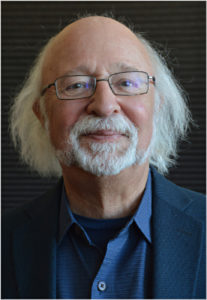On Sacred Counsel
Master’s Musings, August 2022
 On Sacred Counsel: The Blurry Zone Where Astrology Edges Toward Psychotherapy
On Sacred Counsel: The Blurry Zone Where Astrology Edges Toward Psychotherapy
Many years ago, I faced an ethical dilemma in my private practice. I would sometimes do an astrological reading and a day or two later I would get a phone call from the client. “I loved the reading, but it shook me up. Is there any way that we might schedule a follow-up session just to talk about everything?”
I know that even if we are the soul of gentleness and counseling skill, astrological information can go off like an emotional bomb in a person’s life. Truth is like that – no wonder that society always treats it as a “controlled substance.” Obviously, I needed to be responsive to that client – no way that I could just leave someone hanging. So the client would return and we would sit there in my office. The chart would be in front of us, but often it would be ignored or only referenced in vague ways. We’d be speaking plain English, working through whatever loose ends the reading had left hanging for that client personally.
And it dawned on me what I was doing: I was practicing psychology without a license. Or perhaps more importantly, I was practicing psychology without any training.
How could that possibly be ethical? But how could it possibly be ethical to leave a client shaken and unresolved, and me saying “sorry, I don’t have a license to speak with you?” Think about it: perhaps my words in the reading had raised questions about a person’s marriage, or his profession, or her religious faith. People deserved some follow-up – but perhaps they deserved it from someone other than myself?
That thought leads us quickly into a brief digression. That “someone other than myself” might obviously be a qualified mental health professional of some sort. As one’s astrological practice matures, it’s natural that we begin to establish a list of people to whom we might refer any clients who are interested in ongoing psychotherapy. The two fields are complementary. I’m a fan of psychotherapy and I’ve been through it myself. I’ve learned not to be overly impressed by academic credentials though – I’ve met psychotherapists who were saints and I’ve met some who were educated fools. Putting a client’s soul in the hands of the wrong person smacks of heavy karma.
Without much effort, a happy solution soon presented itself: as my practice developed, psychotherapists began to appear as clients. That gave me a chance to get to know them – and to know who among them to trust and who not to. I built social relationships with them, became good friends with a few. An added bonus was the fact that their presence in my office indicated an openness to astrology – and thus neatly avoided the blunder of me sending clients who were confused by their readings into the arms of someone who viewed them as deluded for believing in astrology in the first place.
Referrals are good! They help significantly in solving the problem that I am writing about here. But there’s an obvious issue. It starts with the fact that, via conversation, a psychotherapist takes weeks to get to know a client. We astrologers start with the X-ray – the chart itself. It’s only a small exaggeration to say that we know the client pretty well “before she walks through the door.”
Think of that client who was left feeling unresolved as a result of my work. If she comes to sit with me again, we are already well into that conversation, so we start without preamble. We are already on page 127 of the novel. We are ready to take it further without any preliminary fuss. Sometimes all it takes is a half-hour chat to create liberating understanding and resolution. Put yourself in the client’s place, and compare that quick semi-astrological follow-up with the prospect of facing weeks of psychotherapy at often calamitous expense just to reach the starting line.
There’s more – if astrology created the problem, perhaps it’s astrology that is going to solve it. I don’t mean for that line to sound too glib, but the basic idea is that the symbols always hold the answer – we just need to do a better job, or a different job, of translating them for the client. It wouldn’t be fair to expect a psychotherapist to be able to succeed at that anymore than we would expect an astrologer to understand the nuances of the famous (or infamous) DSM – The Diagnostic and Statistical Manual of Mental Disorders, with its often hairsplitting nuances distinguishing this mental affliction from that one. We are talking about two different languages and two mostly very different forms of expertise.
 Personally, I felt better offering the follow-up, so that’s what I did. And some of those clients came back for further “talking cure” sessions. Soon enough, I was doing a kind of ongoing counseling work of a sort that was probably indistinguishable from psychotherapy in any meaningful way – other than the fact that, technically, there wasn’t actually a psychotherapist in the room, that is. By the time I left North Carolina, about one-third of my practice actually took that form. I loved the depth and humanness of it. In the process, I learned a lot, much of which fed back into my astrological understanding. People expressed gratitude. I saved a marriage or two, and I talked more than one person “off the ledge” – and no one jumped off it as a result of my ministrations either, I am happy to say.
Personally, I felt better offering the follow-up, so that’s what I did. And some of those clients came back for further “talking cure” sessions. Soon enough, I was doing a kind of ongoing counseling work of a sort that was probably indistinguishable from psychotherapy in any meaningful way – other than the fact that, technically, there wasn’t actually a psychotherapist in the room, that is. By the time I left North Carolina, about one-third of my practice actually took that form. I loved the depth and humanness of it. In the process, I learned a lot, much of which fed back into my astrological understanding. People expressed gratitude. I saved a marriage or two, and I talked more than one person “off the ledge” – and no one jumped off it as a result of my ministrations either, I am happy to say.
In other words, welcome back to Square One – the question remains, which is the more ethical path, to offer plain-English follow-up to the client who asks for it, or to withhold it, and perhaps send them onward into the arms of the conventional mental health system?
I read a lot of straight psychology during that period, trying to educate myself. Synchronistically, an opportunity arose for me to apprentice myself to a licensed psychotherapist. I’m sure we skirted many laws as I sat with her and a few of her clients, but I certainly learned a lot just by listening. Perhaps most importantly, I knew my limits – if someone’s problems seemed beyond my scope, verging into psychotic or borderline territory, I still had those referrals. I knew who to call and who to recommend. For example, I knew nothing about psychiatric medications – except an abiding belief that it is wrong to give them out like candy to anyone who reports the blues.
I no longer do much of that kind of one-on-one counseling work. The reason is simple: in 2008, I moved to the desert, miles away from any population centers, and so the logistics of any ongoing counseling became impossible. Astrology began to call me more loudly too and in a different way. My “legacy work” began. I realized that I needed to write several more books and, of course, to help establish the Forrest Center for Evolutionary Astrology, which, I pray, will keep this holy flame burning after my own physical flame has burned out.
For those of you actively enrolled in our classes, down the road we will come to FCEA 401 – Sacred Counsel. That’s where we will learn to thread the labyrinth that connects evolutionary astrology to the array of human counseling skills that allow us to make a difference in the lives of people who entrust their souls to us, whether it’s for two hours or for a longer time.
We’ll learn about how psychology and astrology can complement each other – and how they also present some seemingly irreconcilable differences. It’s one of my favorite topics, and I think it has a whole lot to do with the future of all the helping professions. That material will essentially be the culmination of our Master Level program, as it should be.
Steven Forrest
August 2022

 On Sacred Counsel: The Blurry Zone Where Astrology Edges Toward Psychotherapy
On Sacred Counsel: The Blurry Zone Where Astrology Edges Toward Psychotherapy Personally, I felt better offering the follow-up, so that’s what I did. And some of those clients came back for further “talking cure” sessions. Soon enough, I was doing a kind of ongoing counseling work of a sort that was probably indistinguishable from psychotherapy in any meaningful way – other than the fact that, technically, there wasn’t actually a psychotherapist in the room, that is. By the time I left North Carolina, about one-third of my practice actually took that form. I loved the depth and humanness of it. In the process, I learned a lot, much of which fed back into my astrological understanding. People expressed gratitude. I saved a marriage or two, and I talked more than one person “off the ledge” – and no one jumped off it as a result of my ministrations either, I am happy to say.
Personally, I felt better offering the follow-up, so that’s what I did. And some of those clients came back for further “talking cure” sessions. Soon enough, I was doing a kind of ongoing counseling work of a sort that was probably indistinguishable from psychotherapy in any meaningful way – other than the fact that, technically, there wasn’t actually a psychotherapist in the room, that is. By the time I left North Carolina, about one-third of my practice actually took that form. I loved the depth and humanness of it. In the process, I learned a lot, much of which fed back into my astrological understanding. People expressed gratitude. I saved a marriage or two, and I talked more than one person “off the ledge” – and no one jumped off it as a result of my ministrations either, I am happy to say.